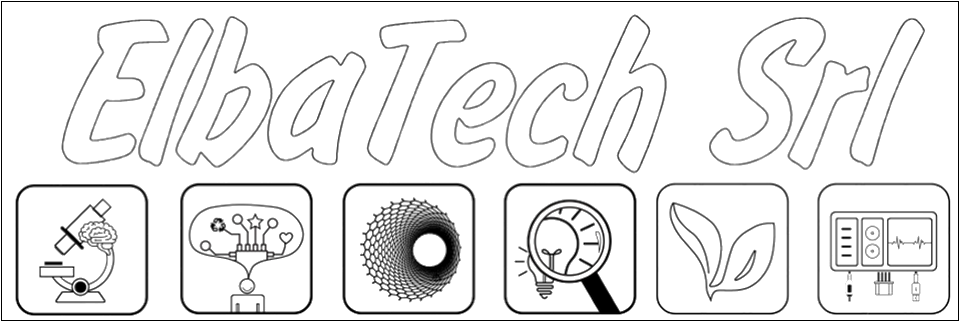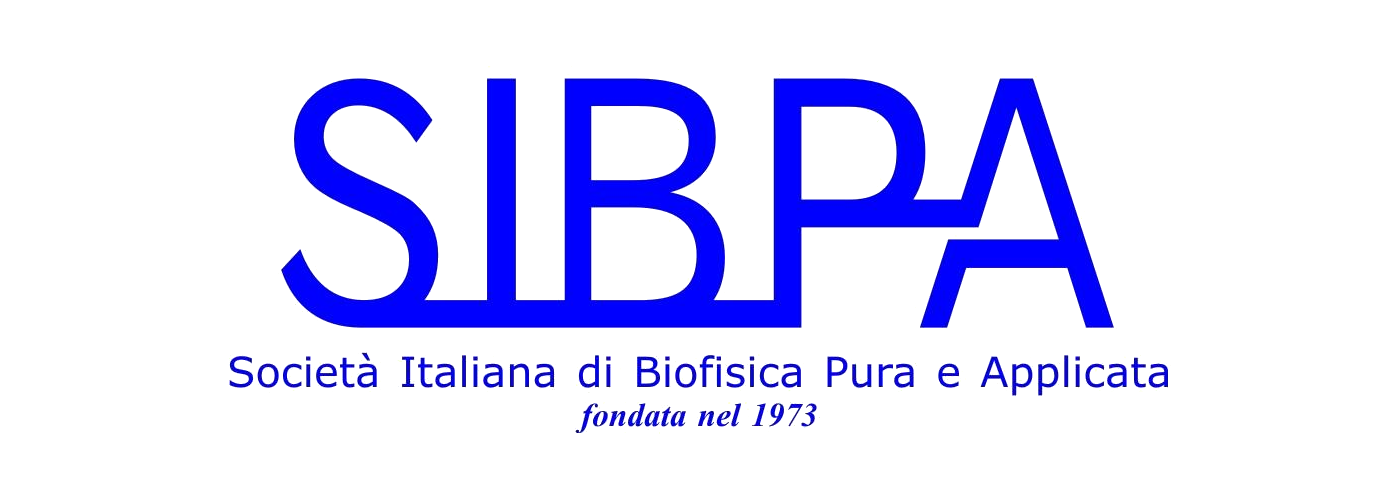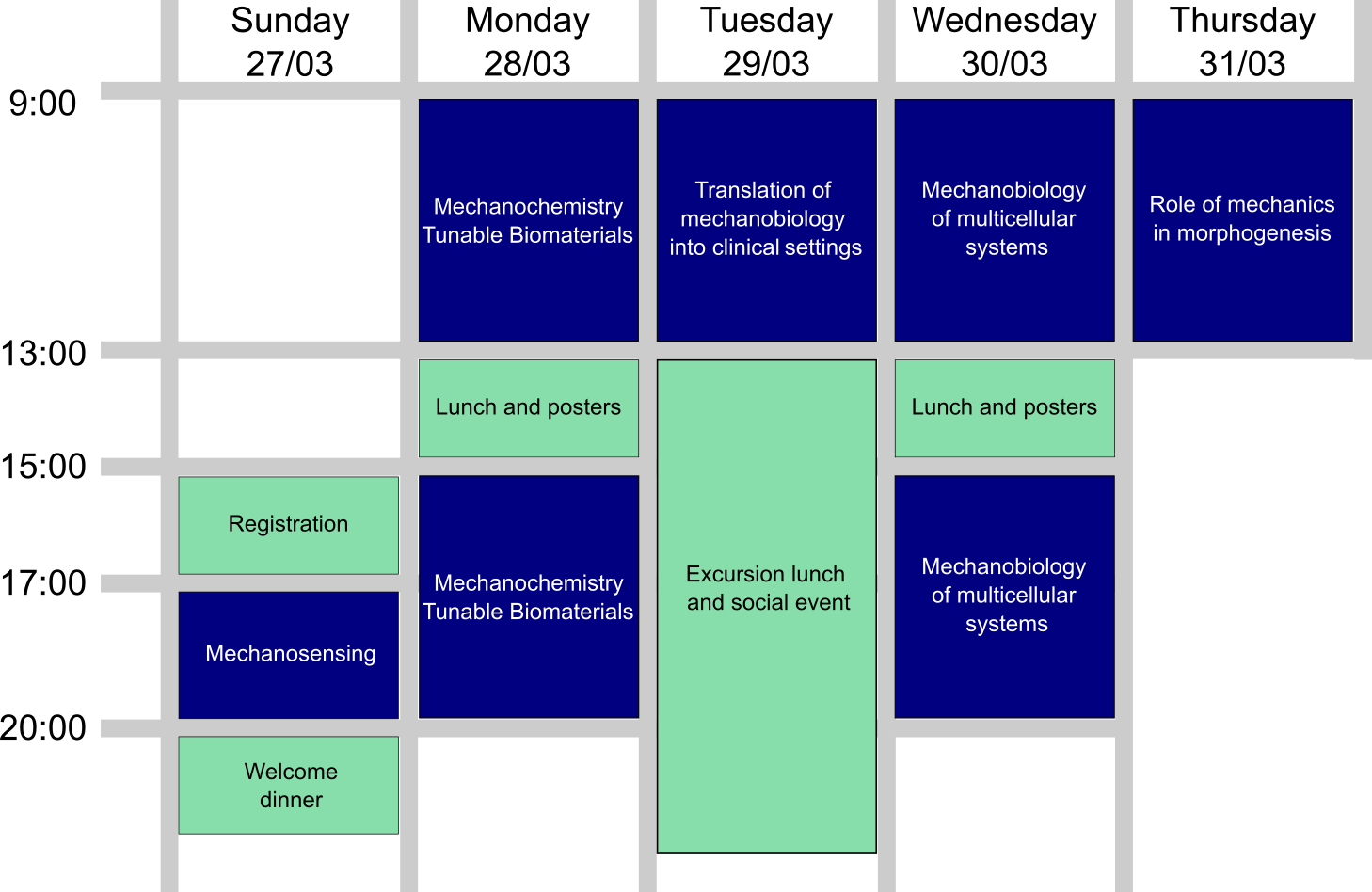The 2022 edition of the Nanoengineering for Mechanobiology happens to be organised in a very peculiar period of our life, when science has played a central role in putting under some control the burden of COVID-19. We hope this event will be part of the process of finding our way through the situation, and it will bring to the little fishermen village of Camogli the same enthusiasm, passion and curiosity that we were used to see during the past editions, fostering the establishment of new and long-lasting collaborations.
The scientific and social program is organised on the line of the previous editions, but with an additional day, to accommodate an additional social activity for the attendees to visit the region and increase their (much missed) interaction. The event will start on Sunday evening, 27/03/2022, to provide the possibility for everyone to join the venue, and enjoy the scientific opening, including some surprise. The symposium will take us through cutting edge science and technology in mechanobiology for 3 full days, and everything will fade out by lunch on Thursday, 31/03/2022, in time to join the airport or train station and start the trip back. As for the previous editions, we will organise a shuttle on Sunday and Thursday to ease this process.
The phylosophy of N4M is that every edition is organized by the founding bodies (EMPA and the CeMi), in collaboration with a Guest Organiser. For the 2022 edition the graduate school Mechanobiology in Epithelial 3D Tissue Constructs (ME3T) of the RWTH Aachen University is bringing new energy in the organisation of the meeting, under the guidance of Rudolf Leube and Jacopo Di Russo.
The scientific program is organized along 5 thematic sessions:
We encourage all the attendees to bring a scientific contribution to the conference, submitting an abstract. A permanent poster session will be set up at the beginning of the conference and will remain accessible along the 4 days of scientific activity, with 2 dedicated moments to discuss the posters with everyone.
The submission for contributions is now closed.
The activity of the conference takes place within the Hotel Cenobio dei Dogi and the registration fees cover the entry to the conference, the conference bag, the access to the scheduled airport shuttles, coffee breaks, lunch and welcome cocktail. Additional services are included depending on the selected accommodation option (see below).
The "Student" and "Conference only" packages are suited for scientists who are not interested in the accommodation within the hotel. The full package is ideal to maximise the interaction and get the most out of this conference, and includes the accommodation in the conference hotel either in a shared or double room. For the shared room accommodation, it is recommended to indicate the roommate during the registration process.
We recognise the importance of having some good time with other scientists to cement the interaction and support long lasting collaborations. For this reason we decided to organise a social event on Tuesday afternoon, the 29th, to visit Genova and have a dinner all together.
We will get to Genova (30-40 min by bus), to have a guided tour of what is considered to be one of the biggest historic centres of Europe. We will be taken through the medioeval alleys and the centre of the town to explore its secrets. At the end of the day, we will be taken to the magnificent D'Albertis castle, with the possibility to visit the unique museum of world cultures and have a dinner all together on its impressive see-looking terrace.
The social event (visit + dinner) is an optional activity and we ask a contribution of €100 from each participant, if booked during the registration process.

REGISTER
Note: you will be directed to an external site. The registration process is managed by our agent, DoubleM.

Speed up single cell adhesion measurements with FluidFM® systems from Cytosurge. Measure up to 200 single cells a day by reversibly attaching mammalian, yeast, bacterial cells, or beads to the probe by suction (no gluing steps required) and thus generate statistically relevant data. Analyze the same cell on different surfaces or cells by changing the conditions. For cell-cell and cell-matrix adhesion measurements. Visit us at our booth to learn more.

IMPETUX instruments enable unprecedented manipulation and mechanical stimulation of living cells and tissues while simultaneously measuring cell forces and their rheological properties in a direct, absolute and non-invasive way.

Bruker BioAFM, a world-leading manufacturer of Atomic Force Microscopes and Optical Tweezers, delivers renowned, high-performance instrumentation and analytical solutions.
Come by our booth and see our latest development, the NanoWizard V BioScience AFM. It marks a new milestone in automation and ease of use for life science research. Its self-regulating operation can significantly increase productivity and throughput across a wide range of bio-applications. Featuring the new PeakForce-QI™ mode, it delivers unprecedented quantitative nanomechanical imaging capabilities to your lab.

Nanosurf will show never before seen high-end capabilities with the new DriveAFM platform. It integrates with FluidFM technology, allows mass measurements of single living cells, features unparalleled imaging stability in liquid, and more. Visit us at our booth to get the full picture of the future of AFM.
Optics11 Life offers powerful table-top nanoindenters that are remarkably user-friendly, versatile, and robust. The nanoindentation instruments can measure complex, irregular biomaterials such as single cells, tissues, hydrogels, and coatings.

LUMICKS instruments allow researchers to build the crucial bridge between structure and function. This is achieved by applying and measuring forces around biological interactions, enabling the detailed real-time analysis of underlying biological mechanisms.

PI stands for technical excellence and continuous advance in precision positioning – driven by the passion for technology and its use in customer applications.

ElbaTech is a high-tech Company operating in the fields of electronics and general innovation, able to provide products and systems responding to the highest standards.

EBSA aims to advance and disseminate knowledge of the principles, recent developments and applications of biophysics, and to foster the exchange of scientific information among European biophysicists and biophysicists in general.

The DFG is the self-governing organisation for science and research in Germany. It serves all branches of science and the humanities.

The Italian Society for Pure and Applied Biophysics (SIBPA) is an open and no-profit scientific association founded in 1973 to support the field of biophysics in Italy.

The graduate school Mechanobiology in Epithelial 3D Tissue Constructs (MEƎT).

We are a multidisciplinary team of bioengineers and cell engineers based at the University of Glasgow.

The interdisciplinary research institute of the ETH Domain conducts cutting-edge materials and technology research.
The program of the conference is organised over 5 days, starting on Sunday afternoon and closing the activity on Thursday morning. The program is sketched in the figure below, indicating the main scientific (blue) and social (green) activities. The final program is now available to download.


Over the past few decades, it became evident that not only molecular but also mechanical signals are pivotal in controlling biological functions. These include highly relevant processes for human health, such as development, cancer, or neurodegenerative diseases. Mechanobiology is the field that studies the biological role of mechanics with the interdisciplinary contribution of engineers, chemists, physicists, and biologists. Given the recent developments in nanoengineering, more opportunities to develop mechanotherapies and mechanodiagnostics are waving on the horizon.
However, translation from theoretical knowledge and experimental research to the actual clinical application is still challenging. During the sixth edition of the Nanoengineering for Mechanobiology conference, we will devote a special session to early-career scientists to present their ideas for translation. The researcher or the team with the strongest and most promising idea will receive an earmarked financial contribution to kick-start a project, laying the foundation to form a bench-to-bedside application.
Join US in supporting the initiative
Do you want to participate to the competition? Submit your proposal here